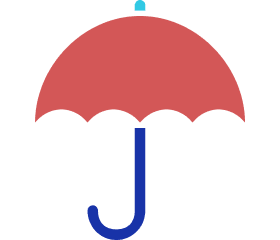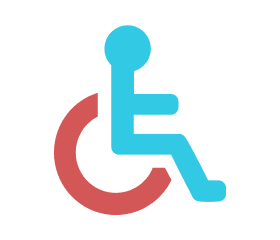Insurance Planning Protects You and Your Loved Ones from the Unexpected
Insurance planning is an essential part of financial planning because it protects you and your loved ones from the costs associated with illness, disability, accidents, and death. Being prepared for the unexpected ensures you can still be financially independent and achieve your personal and financial goals, even after an emergency or financial crisis.
Why Insurance Planning Should be Part of Your Financial Plan
Insurance Planning. Risk Management. Protection Planning. No matter what you call it, it’s a critical part of your financial plan.
Insurance planning provides peace of mind to you and your loved ones. Having the right insurance makes it easier to navigate financial obstacles when they occur. Depending upon your age, goals, health, family situation, and income, you may require various types and levels of insurance at different times. This is why it’s critical to evaluate your insurance needs at different stages of your life.
There is a financial side to staying healthy. The best financial plan in the world can fail if exposed to risks such as disability, premature death, or the need for long-term nursing care. In our increasingly litigious environment, it is also imperative to have adequate personal liability protection. Unexpected events can devastate your financial wellbeing, and as financial planners, it is our job to help you evaluate and mitigate these risks.
Common Insurance Planning Questions We Will Answer
- How do I know if I have enough (or too much) insurance?
- Should I reduce any of my insurance when I retire?
- Is long-term care insurance worth it?
- I have investments that can provide for my heirs. Why should I spend money on life insurance?
Which Insurance is Most Important?

Health Insurance

Homeowners' Insurance

Automobile Insurance





Health Insurance

Homeowners' Insurance

Automobile Insurance




The answer to the question “which insurance is most important?” depends on many things. The goal of insurance planning is to ensure you are prepared for an unexpected financial emergency so you don’t have to empty your emergency fund and life savings. Therefore, the first step in insurance planning is to assess your needs and exposures and identify what’s at risk.
Do you know the answers to these important insurance planning questions?
- How will you cover rising healthcare costs for yourself and your family?
- Will your family be okay if you are injured or fall ill and can no longer work?
- Who will care for you if you can no longer care for yourself or live independently?
- Should you reallocate your insurance money as you near retirement?
- Do you know if a health savings account is right for you?
- Have you assessed the different Medicare options to determine what will benefit you most?
Once you have identified what you need to protect, consider what’s at risk. Do you have enough assets to pay for an emergency without compromising your personal and financial goals, including retirement?
Few people would own a home without homeowners insurance or drive a car without automobile insurance because they protect you in the case of an accident. So why go through life without life insurance or long-term disability insurance? Why consider retirement but not long-term care insurance?
Learn About Our ProcessThe Different Policies to Consider in your Insurance Plan

Health Insurance
Health insurance is probably the one insurance policy you should never be without. Even if you’re young and healthy, having to pay out-of-pocket for healthcare in the event of an unexpected accident or illness can be financially devastating. If you are working, your employer likely provides you with a health insurance option (and may even pay for all or part of it). At the age of 65, you will become eligible to enroll in Medicare. Depending upon whether you are still working or retire at that point, there will be different insurance plan options for you to consider.

Homeowners Insurance
If you own a home, homeowners insurance is considered an essential insurance plan. It provides financial protection for your home in the event of a disaster, such as fire, theft, and vandalism. It’s worth noting that earthquake, flood, and sump pump related damages may not be covered under a standard policy, so be sure to speak with your financial advisor to ensure you are not underinsured.

Automobile Insurance
If you own or lease a car, automobile insurance is essential. At the most basic level, it protects you against financial loss in the case of an accident or vehicle theft. But auto insurance policies are not always as clear-cut as you would think. For example, states have different minimum required coverages and limits, and various coverage types are available. Also, the amount you pay for car insurance will vary based on many factors, ranging from your age and driving record, to the type of car you drive and where you park it.

Umbrella Liability Insurance
Umbrella insurance is extra insurance that protects beyond the existing limits and coverages of your other policies. It may provide coverage for injuries, property damage, lawsuits, and personal liability situations. Generally speaking, umbrella insurance is not expensive to purchase and is often recommended.

Life Insurance
Life insurance protects your family, providing your beneficiaries with a non-taxable amount of money when you die. Without your income, it may be difficult for your family to thrive. Life insurance helps them to pay off debts, pay the mortgage, and cover living expenses. Many individuals carry life insurance during their working years when their children are young, and there is still a mortgage to pay. As you age, you may want to reevaluate the need for, or amount of, life insurance you carry.

Long-Term Disability Insurance
Long-term disability insurance replaces a percentage of lost income if you cannot work for an extended period, typically around 26 weeks after an eligible event or when short-term disability runs out (if you have it). The problem is, employers are not required to provide short-term disability or long-term disability insurance. In the event of illness or injury, your family could be left without your income stream. Purchasing private long-term disability insurance ensures you can cover living expenses even if you can’t work for some time. Once you retire and your children are grown, however, you may decide long-term disability insurance is no longer the best use of your funds.

Long Term Care Insurance
Long-term care insurance can become critical in your later years, when you may need a home health care aide, assisted living, or nursing home care. These expenses are not typically covered by health insurance, Medicare, or Medicaid.
These are the main insurances that individuals buy at some point in their lives.
There are other types of policies you may want to consider. For example, if you have an expensive collection of art, jewelry, cars, and even wine, insurance riders are available.
Remember, all your hard work and financial planning will be for nothing if you don’t have a proper insurance plan in place and are faced with an emergency. Retirement plans can be devastated, savings wiped out, and homes lost. Being underinsured can be as devastating as having no insurance, so speak with a financial planner or insurance advisor to ensure you are adequately insured.
Hope for the best… Plan for the worst.. ”
- Lee Child
Plan for a Life Well Lived. Contact us to learn how we can help.
© 2026 Access Wealth. All Rights Reserved.





